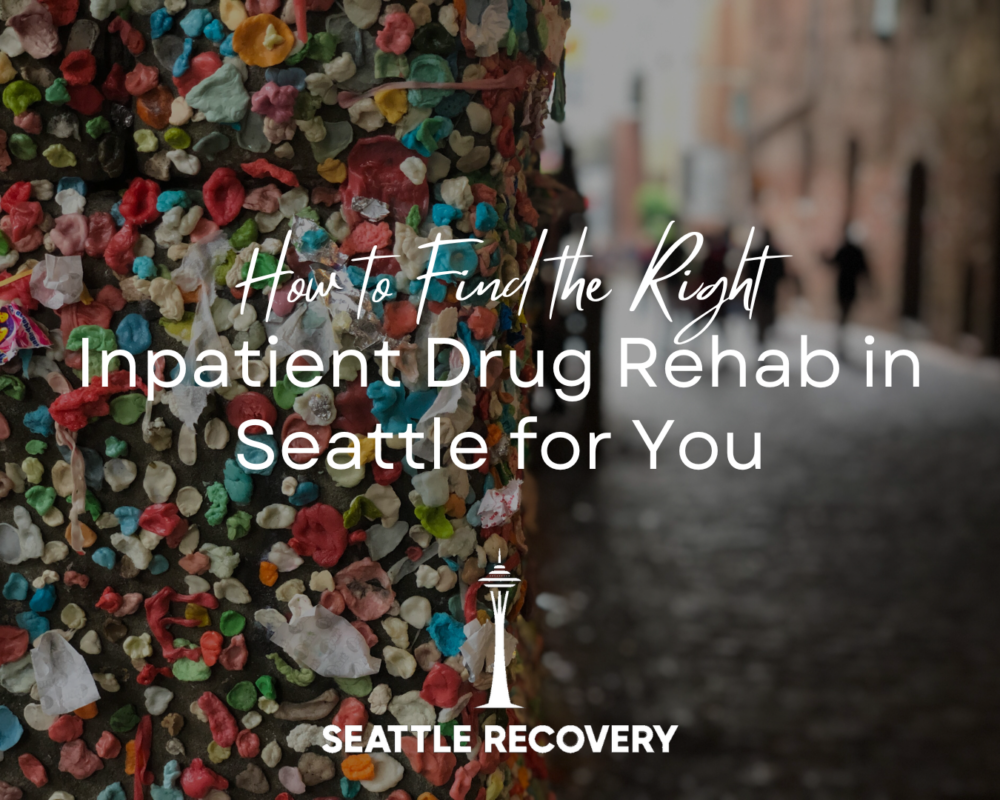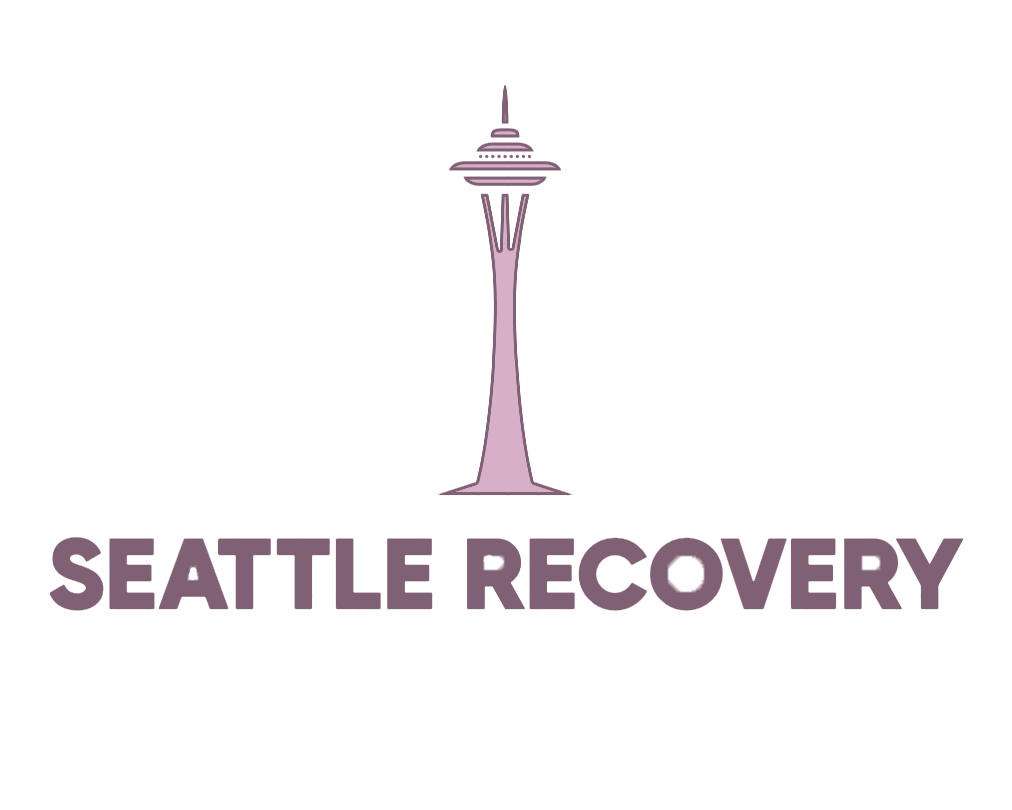Choosing the right inpatient drug rehab in Seattle is a crucial first step on the road to recovery. Seattle’s vibrant community and rich resources make it a great place to seek help, but with so many options, it can be challenging to decide which facility is the best fit for your needs. Whether you’re looking for a center that offers holistic therapies, focuses on evidence-based practices, or provides specialized support for co-occurring disorders, the choices can feel endless. In this guide, we’ll cover everything you need to know to make a well-informed decision about your treatment.
What to Look for in an Inpatient Drug Rehab in Seattle
When considering inpatient drug rehab in Seattle, there are several important factors that can make a difference in your treatment experience and outcomes. Let’s dive deeper into these key aspects so you can feel confident in your choice.
1. Accreditation and Licensing
Before you consider any other factors, it’s essential to ensure that the rehab facility is both licensed by the state and accredited by reputable organizations. Accreditation from bodies like the Joint Commission or the Commission on Accreditation of Rehabilitation Facilities (CARF) indicates that the facility meets stringent standards for quality care and ethical practices.
Why Accreditation Matters:
Facilities with these accreditations are held to high standards in areas such as safety, patient rights, and treatment effectiveness. Choosing an accredited inpatient drug rehab in Seattle gives you confidence that the center operates under recognized industry guidelines, which can contribute to a more reliable and supportive recovery environment.
2. Diverse Treatment Approaches
Addiction affects each person differently, so it’s vital to find a rehab center that offers a variety of treatment approaches. The best inpatient drug rehabs in Seattle typically include a mix of evidence-based therapies such as Cognitive Behavioral Therapy (CBT), Dialectical Behavior Therapy (DBT), and motivational interviewing. Some facilities may also offer holistic therapies like yoga, art therapy, or acupuncture, which can aid in stress reduction and emotional regulation.
Questions to Ask:
- Does the facility incorporate a range of therapies to address both mental and physical aspects of addiction?
- Can they customize treatment plans to suit your personal needs and challenges?
- Do they offer group and individual therapy sessions?
The Importance of Tailored Treatment:
Customized treatment ensures that you’re not just placed into a generic program that may not address your unique situation. Instead, the rehab facility conducts a thorough assessment of your specific needs, taking into consideration your substance use history, any co-occurring mental health disorders, and other personal factors that may influence your recovery journey. This personalized approach is vital, as it acknowledges that each individual’s path to healing is different. A flexible treatment plan can be particularly effective because it allows the facility to adapt your therapy as you progress through various stages of recovery. This adaptability not only helps in addressing emerging challenges but also keeps you engaged and motivated, providing the necessary support through every phase of your journey toward wellness. By focusing on your individual circumstances, the rehab facility creates a supportive environment that fosters long-term recovery and empowers you to achieve your goals.
3. Experienced and Compassionate Staff
In a rehabilitation environment, the staff can make a world of difference. Look for an inpatient drug rehab in Seattle where the staff members are not only experienced but also compassionate. Ideally, you want to work with licensed professionals, including addiction counselors, therapists, medical doctors, and nurses.
Key Roles in a Rehab Team:
- Medical Doctor (MD): Oversees detox and addresses any physical health issues related to substance use.
- Licensed Therapists (LMHC, LCSW): Provides mental health support and therapeutic intervention.
- Addiction Counselors: Specialize in addiction recovery techniques and strategies.
- Case Managers: Help with post-rehab planning, coordinating necessary services after discharge.
Staff members who genuinely care about your well-being foster a sense of trust and security, both of which are essential for recovery. They create a supportive environment where you feel understood and respected.
4. Comprehensive Detox Services
Many individuals entering an inpatient drug rehab in Seattle require a medically supervised detox as the first step. Detoxification involves clearing drugs or alcohol from your system, which can sometimes trigger withdrawal symptoms. Facilities that offer in-house detox services can make the transition smoother by ensuring medical support is readily available.
Why In-House Detox is Beneficial:
Detox can be a physically and emotionally demanding process. Having medical professionals available to monitor you during this stage minimizes the risk of complications and provides a foundation for the rest of your treatment. Moreover, being in the same facility for detox and rehab can help maintain continuity of care, which is beneficial for long-term success.
5. Co-Occurring Disorders Treatment
Many people struggling with addiction also have co-occurring mental health disorders, such as depression, anxiety, PTSD, or bipolar disorder. If you’re dealing with both addiction and mental health challenges, it’s crucial to choose an inpatient drug rehab in Seattle that specializes in dual-diagnosis treatment.
Why Dual-Diagnosis Care Matters:
Dual-diagnosis treatment is a comprehensive approach that addresses both mental health conditions and substance use disorders simultaneously. This method not only reduces the risk of relapse but also enhances overall mental health by providing a holistic treatment plan. By tackling mental health challenges—such as anxiety, depression, or trauma—alongside addiction treatment, individuals are equipped with effective coping strategies and skills to manage both issues. This integrated approach fosters a more supportive environment for recovery, increasing the likelihood of achieving a balanced and sustainable recovery that promotes long-term well-being and quality of life.
6. Focus on Aftercare Planning and Support
Completing an inpatient program is a significant achievement, but maintaining sobriety requires ongoing support. Quality inpatient drug rehabs in Seattle will offer robust aftercare planning, helping you transition back into daily life while still providing the resources you need to stay sober.
Components of Effective Aftercare:
- Sober Living Arrangements: Some facilities offer sober living homes as a transition phase between rehab and full independence.
- Support Groups: Continued access to 12-step programs, group therapy, or alumni support groups.
- Outpatient Counseling: Many inpatient centers also offer outpatient services that provide continued therapy and support.
- Relapse Prevention Training: Learning strategies to manage cravings, triggers, and stressors.
Aftercare is essential because it helps bridge the gap between the structure of rehab and the unpredictability of daily life. A solid aftercare plan can mean the difference between sustained recovery and relapse.
7. Location and Amenities
Location plays an important role in your recovery journey. For some, staying close to home in Seattle may provide a sense of familiarity and make it easier for family members to be involved in the process. For others, a more removed or secluded setting might be beneficial, allowing for a mental reset away from everyday stresses and potential triggers.
Amenities That Make a Difference:
Beyond location, consider the amenities offered. The best inpatient drug rehab in Seattle facilities understand that comfort and environment contribute to healing. Look for amenities like private rooms, fitness centers, outdoor spaces, art studios, and therapy animals. Amenities might not seem essential at first glance, but they contribute to an overall environment that supports relaxation, reflection, and growth.
8. Cost and Insurance Options
Inpatient treatment is a substantial financial commitment, but many inpatient drug rehabs in Seattle accept insurance or offer financial assistance programs. Contacting both your insurance provider and the rehab facility to understand what’s covered can save you time and stress. Additionally, some centers provide payment plans, sliding scale fees, or scholarships for those in financial need.
Financial Considerations:
- Verify what’s covered by your insurance.
- Ask about payment plans, sliding scales, or other financial assistance.
- Compare the costs with the quality of services offered.
9. Program Duration and Flexibility
Different people need different lengths of treatment. The best inpatient drug rehabs in Seattle offer flexible program durations, typically ranging from 30 days to 90 days or even longer for those requiring extended care. Understanding how much time you may need for recovery can help you choose a program that aligns with your personal and financial situation.
Why Flexibility Matters:
Shorter programs may work for those with mild addiction, while longer stays are often recommended for people with severe or long-standing addiction issues. Finding a program that can adapt to your progress helps ensure that you receive the support you need without feeling rushed.

Important Questions to Ask Potential Inpatient Drug Rehabs in Seattle
When speaking with potential facilities, here are some key questions to consider:
- Do you offer dual-diagnosis treatment for co-occurring disorders?
- What types of therapy do you provide, and are they evidence-based?
- How involved is the family allowed to be in the treatment process?
- What are the qualifications of your medical and therapy staff?
- What kind of aftercare support do you offer after discharge?
- Can you help with insurance paperwork and financial aid options?
The Significance of Choosing the Right Inpatient Drug Rehab in Seattle
The decision to enter rehab is a significant milestone in the journey toward recovery, marking a crucial step towards a healthier and more fulfilling life. Finding the right inpatient drug rehab in Seattle can play an enormous role in the overall success of your recovery journey. Each facility offers unique strengths, whether it’s specialized programs, experienced staff, or a supportive community environment. By carefully matching those strengths with your personal needs and circumstances, you can significantly increase your chances of achieving a successful recovery.
Consider this choice not just as a necessary step, but as a valuable investment in your future—a future where you are empowered, healthy, and free from the grip of addiction. This journey may come with challenges, but with the right support and resources, it also opens the door to new opportunities, healthier relationships, and a life filled with purpose. Taking the time to research and select the best program for you can be transformative, setting the foundation for a brighter and more hopeful tomorrow.
Additional Tips for Maximizing Your Rehab Experience
- Be Open to the Process: Rehab can bring up a lot of emotions and sometimes feels challenging. Trust the process, and try to remain open to new experiences, even if they feel uncomfortable at first.
- Engage Fully: The more you put into your rehab experience, the more you’ll get out of it. Engage in all aspects of the program, participate actively in group sessions, and take advantage of available resources.
- Build a Support Network: Use your time in rehab to build connections with others who understand what you’re going through. These connections can provide emotional support both during and after treatment.
- Set Goals for Post-Rehab Life: Start envisioning what you want your life to look like after rehab. Share these goals with your treatment team so they can help you build a roadmap for achieving them.
- Stay Connected Post-Rehab: After leaving rehab, stay engaged with your support network, whether through support groups, sober living communities, or alumni programs.
Finding the right inpatient drug rehab in Seattle requires time, research, and careful consideration. From the facility’s accreditation and treatment approach to the expertise of its staff and availability of aftercare support, each factor plays a vital role in your recovery journey. Remember, recovery isn’t a one-time event—it’s a lifelong commitment. By choosing a facility that aligns with your values, needs, and personal goals, you’re setting the foundation for a healthier, happier future.
Don’t rush this decision. Reach out, ask questions, and visit potential facilities if you can. You’re taking the first step toward a better tomorrow, and with the right support, a brighter, addiction-free future is entirely within reach. If you or a loved one is ready to start this journey, Seattle’s rehab centers are here to help guide the way.
FAQs
- How long does inpatient drug rehab in Seattle typically last?
-
- Most programs offer 30, 60, or 90-day options, but the length can vary based on individual needs.
- Is inpatient rehab better than outpatient rehab?
-
- Inpatient rehab offers a more controlled environment, which can be ideal for individuals with severe addiction or those needing a fresh start.
- Can family members participate in the rehab process?
-
- Many inpatient rehabs in Seattle encourage family involvement through therapy sessions or family visitation days, recognizing the importance of family support.
- Is detox included in inpatient rehab programs?
-
- Many facilities offer medically supervised detox as the first step in their programs, but it’s essential to verify this with each center.
- What happens if I relapse after rehab?
-
- Relapse can be a part of the recovery journey. Many facilities offer alumni programs or support groups to provide ongoing support if challenges arise post-rehab.
For those seeking help, now is the time to take the next step. A Seattle-based rehab program could be your gateway to a life free from addiction, filled with hope and purpose. Reach out today and begin your journey. Visit our website https://seattlerecovery.org/ or call us at (206) 231-0252.







